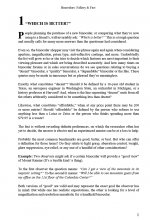PennineBirder
Well-known member
A current thread (lemons) on the scope forum had me thinking about binocular quality control. Back in the mid 1970s I bought a pair of Zeiss Jena Jenoptem 10x50 binoculars - my first decent optics. After comparing the five or so examples which were in stock in the shop (in London, but can't remember which one) against each other I chose the best of the bunch. My Jenoptems were optically very fine binoculars in their day and lasted me a few years before selling them.
My point about quality testing was in this case, the extreme variation between these five examples made me think there probably wasn't any quality control being exercised in this make and model. The ones I bought were excellent, the worst of the bunch were terrible. Later, I was told that the only difference between the Jenoptem 10x50 and the much more expensive Dekarem 10x50 was that the latter was subject to a quality control process in the factory and so the buyer was less likely to end up with a poor example. Optically the two models were identical.
Does anyone know if this story is true?. Have things improved in binocular quality control testing over the intervening years?.
My point about quality testing was in this case, the extreme variation between these five examples made me think there probably wasn't any quality control being exercised in this make and model. The ones I bought were excellent, the worst of the bunch were terrible. Later, I was told that the only difference between the Jenoptem 10x50 and the much more expensive Dekarem 10x50 was that the latter was subject to a quality control process in the factory and so the buyer was less likely to end up with a poor example. Optically the two models were identical.
Does anyone know if this story is true?. Have things improved in binocular quality control testing over the intervening years?.




